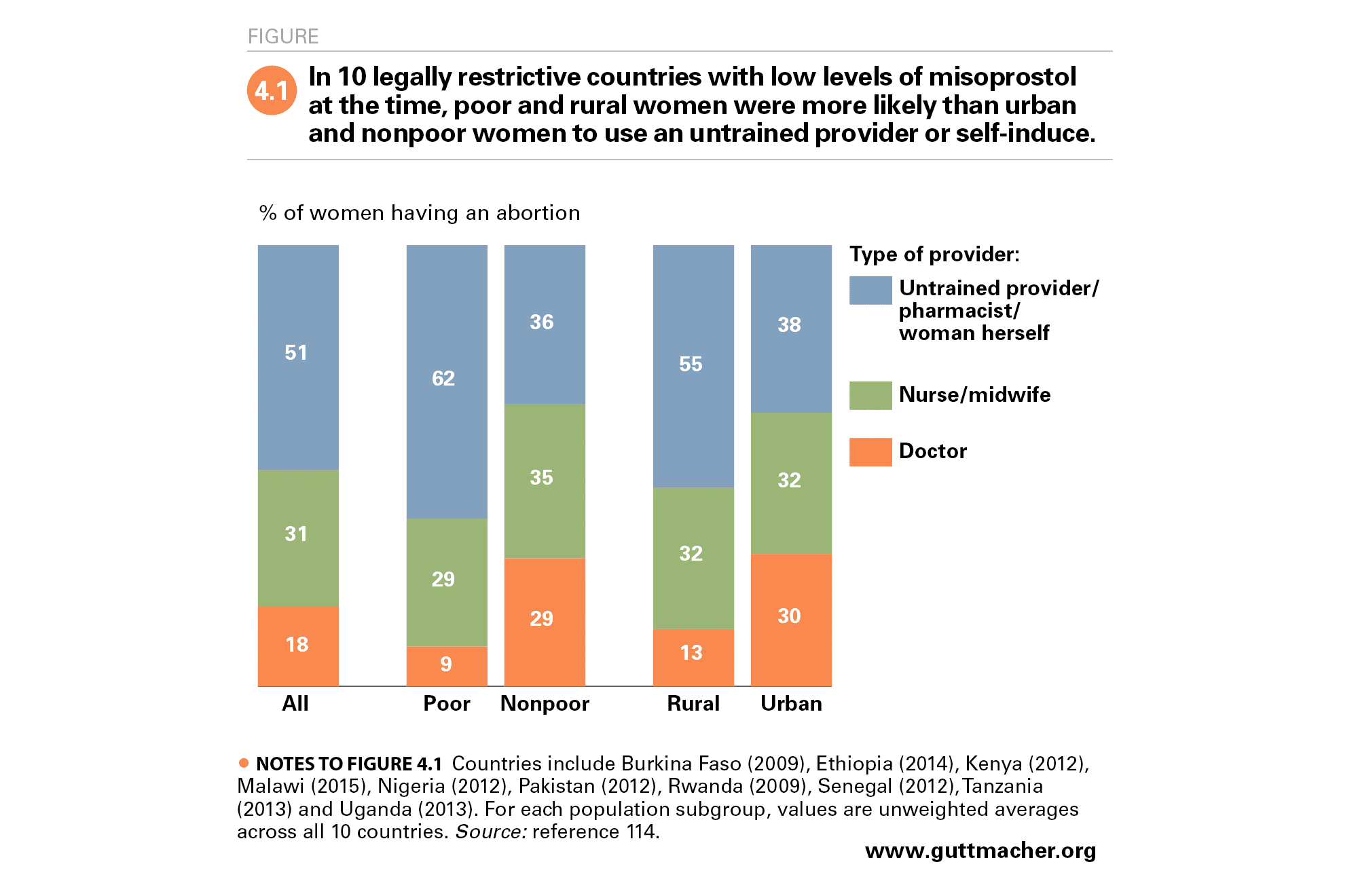
Abortion Worldwide 2017: Uneven Progress and Unequal Access, Guttmacher Institute 2018
Ethical concerns facing abortion researchers in restrictive settings
by Grace W Kimemia, Caroline W Kabiru, Boniface Ayanbekongshie Ushie
Sexual and Reproductive Health Matters 2023;31(1):26 April (Open access)
In this commentary, researchers from the African Population and Health Research Center in Kenya discuss the problem of male providers of illegal abortions forcing pregnant women to have sex with them, abusing the women sexually and often raping them, as part payment for their “help” to have an abortion. It discusses the ethical issues involved in encountering this in the course of research that involves these “providers” as well as the effects on women and girls themselves, e.g. how revealing this kind of information may put them at risk.
+++
“They talked to me rudely”. Women’s perspectives on quality of post-abortion care in public health facilities in Kenya
by Ramatou Ouedraogo, Grace Kimemia, Emmy Kageha Igonya, Sherine Athero, Shelmith Wanjiru, Martin Bangha, Kenneth Juma
Reproductive Health, 27 February 2023;20:Article 35
Access to safe abortion is legally restricted in Kenya. Therefore, majority women seeking abortion services in such restrictive contexts resort to unsafe methods and procedures that result in complications that often require treatment in health facilities. Most women with abortion-related complications end up in public health facilities. Nevertheless, evidence is limited on the quality of care provided to patients with abortion complications in public health facilities in Kenya. This was a qualitative study with interviews with 66 women who received post-abortion care in a sample of primary, secondary and tertiary public health facilities in Kenya between November 2018 and February 2019.
The majority of participants initially reported that they received “good care” because they left the facility with their medical problem resolved. However, when probed, about half of them reported delays in receiving care despite their condition being an emergency (i.e. severe bleeding and pain). Participants also reported instances of abuse (verbal and sexual) or absence of privacy during care and inadequate involvement in decisions around the nature and type of care they received…. And –women who experienced miscarriages reported supportive care whereas women suspected to have induced their abortions felt stigmatised.



